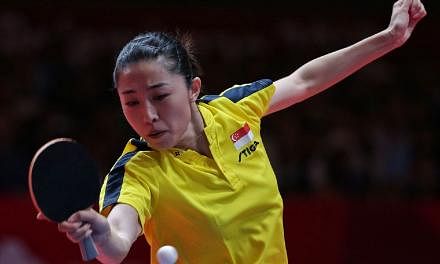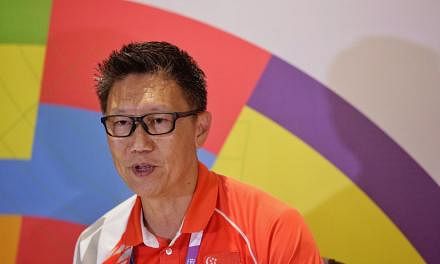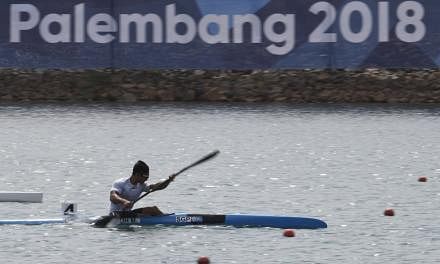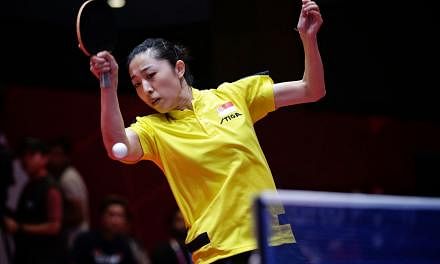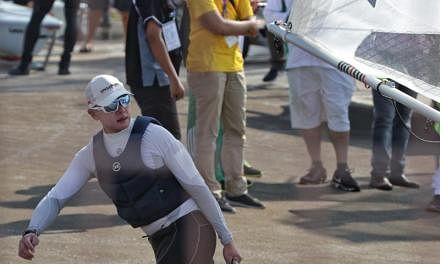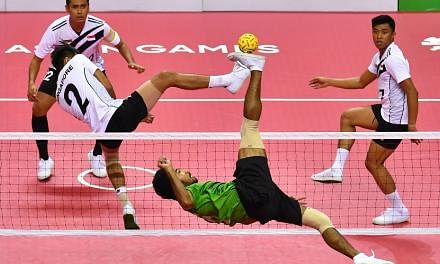JAKARTA • The tiny Gulf kingdom of Bahrain finishing joint-top of the Asian Games athletics table with China - the world's most populous country - seems like an uplifting, David and Goliath story.
Not quite.
Despite landing 12 gold medals, not everyone is rushing to congratulate the Bahrainis because not a single track win was achieved without the selection of "naturalised" athletes who were born in Africa.
Bahrain's policy of scouting and offering nationality to talented foreign athletes - which is entirely legal - has stoked controversy for years, but the results have been particularly stark in Indonesia.
All 10 individual athletics golds won by Bahrain were earned by runners of African origin - more specifically, Nigeria, Ethiopia, Kenya and Morocco.
And, of the two gold-winning relay teams, all but two athletes were Africa-born.
For the athletes themselves, the appeal of switching allegiance is obvious - financial security is key, but tales of poor treatment or lack of opportunities in their countries of birth are commonplace.
"Bahrain was good pay, good treatment," explained 1,500m and 5,000m winner Kalkidan Befkadu.
The 27-year-old, who moved to Bahrain in 2012, said: "There are so many strong athletes in Ethiopia so it's a challenge to compete, that's also why I changed. I'm pleased with my decision."
But, for athletes from other nations who fell short of a gold behind Africans competing for their adopted countries, there is a sense that the competition has been distorted.
India's Dutee Chand, who had to fight a legal battle to even compete in Jakarta due to her high testosterone levels, twice missed out on gold, in the 100m and 200m, to Nigeria-born Edidiong Odiong.
Chand and her fellow athletes have not spoken out on the issue, but Indian newspapers were quick to jump on the controversy.
The Indian Express this week listed the athletes who "had to suffer at the hands of the 'Out of Africa' contingent", while The Hindu referred to two Qatari competitors as "Africans in West Asian garb".
Rules on naturalising athletes vary among countries, but Bahraini officials have defended their recruiting methods, citing the vast resources they pour into training them.
"It is not (just) nationality that brings us medals, but the training, and technical and administrative effort," Bader Nasser, manager of the Bahrain Athletics Federation, said.
But now that Bahrain has broken the monopoly of its own continental superpower - China last failed to outright top the Games' athletics table in 1982 - it may need to prepare for greater scrutiny.
While not everyone is happy, most athletes speaking to Agence France-Presse in Jakarta were effusive in their praise for their high performance levels.
"Bahrain is very powerful in the Games. I'm inspired and I want to get better like them," Indonesian sprinter Ulfa Silpiana said.
Indonesia also broke South-east Asia's record of total gold medals at a Games with 30 as of yesterday.
Thailand previously held the mark, having bagged 24 golds at the 1998 Games in Bangkok.
"All the achievement is exhilarating," said Indonesian Youth and Sport Minister Imam Nahrawi.
AGENCE FRANCE-PRESSE, XINHUA


